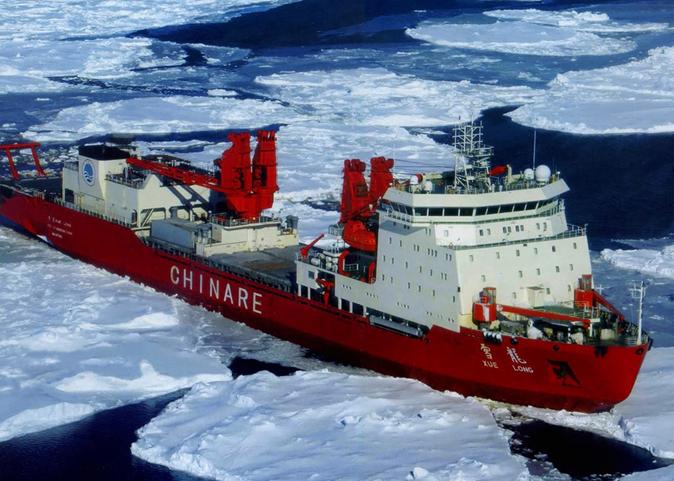Report released for polar policy in China

China’s icebreaker Xue Long sets off on an Arctic expedition.
Global climate change and the world's focus on sustainable development has led to a surge of interest in the polar regions. China has long presence in Arctic and the Antarctic, China organized its first polar research expedition after signing the Antarctic Treaty in 1983, and established the Great Wall Research Station in Antarctica in 1985.
Since these initial moves, China has conducted over 30 research expeditions to the Antarctic and five to the Arctic. It now has four Antarctic research stations and one Arctic research station, which have yielded well-known scientific results.
"The project of Comprehensive Examination and Evaluation of the Polar Environment marks a milestone for China 's scientific research in the polar regions ," wrote Zhang Dengyi in the Annual Report on National Polar Policy Research.
Zhang, the honorary director the Chinese Advisory Committee for Polar Research, affirmed that the project is important for China to protect its national rights and interests in the polar regions and to accelerate its polar research.
Ding Huang, director of the School of Political Science and Public Administration at Wuhan University, said that there is no substitute for polar expeditions in safeguarding and furthering nations’ legitimate rights and interests in the Antarctic. According to Ding, different countries’ keen eye on the polar regions, and their potential competition for access, indicate the general conflicts of interests based on resources. He elaborated that in this context “resources” not only refers to tangible natural or economic resources, but also a country’s ability to be heard in global governance around polar affairs.
The Report also stresses that China ’s major political interests in the Arctic lie in ensuring its ability to participate in the multi-lateral cooperation and governance in the region. Arctic research is important for global change and humankind’s survival and future. As a developing power close to the Arctic, China has ample room for Arctic research, the Report argues. China can share the results of its research with the international community. Through arctic research, Chinese scientists can work on problems in the space sciences and help further technological progress and the application of advanced technology.
“Social science has traditionally focused on international law and international politics in the past, but from a geopolitical perspective, polar issues are also a matter of foreign policy as well,” noted Ding Huang, who is trying to apply theories and approaches in modern public policy to his research on national policy and strategy in the polar regions.
Comprehensive and correct understanding of China ’s national interests is the foundation for making proper polar policy, said Qu Tanzhou, director of the Chinese Arctic and Antarctic Administration.
“Many countries have already formulated strategies regarding the changes in the polar regions. China must also make its own national polar strategy in the long run,” Qu advised.
